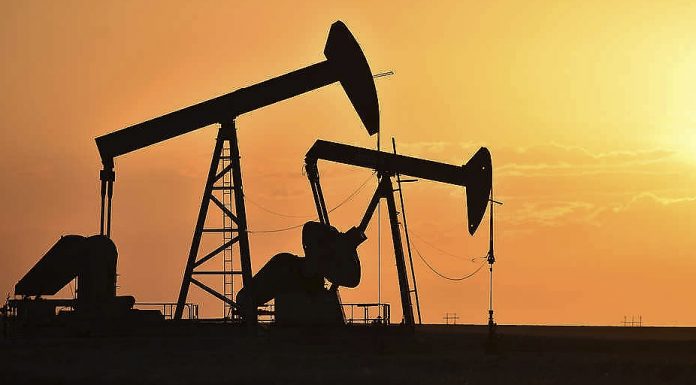(Headline USA) President Joe Biden on Wednesday called on U.S. oil refiners to produce more gasoline and diesel, saying their profits have tripled as Americans struggle with record high prices at the pump and threatening to use “emergency powers” to regulate the private industry if they refuse to comply.
“The crunch that families are facing deserves immediate action,” Biden wrote in a letter to seven oil refiners. “Your companies need to work with my Administration to bring forward concrete, near-term solutions that address the crisis.”
The so-called emergency is largely self-wrought by the Biden administration. On Day 1 of his presidency, Biden pushed through a series of executive orders that disincentivized large-scale production by threatening increased regulation, even as the companies sought to recover from a pandemic-era decline in gas consumption.
While eliminating America’s energy independence, Biden also encouraged geopolitical adversaries such as Russia, China, Iran and Venezuela, requesting that they make additional gas and oil resources available to America. But many have openly refused his overtures.
Gas prices nationwide are averaging roughly $5 a gallon, an economic burden for many Americans and a political threat for the president’s fellow Democrats going into the midterm elections.
Broader inflation began to rise last year as Democrats continued to pump new debt and currency into the economic system. It furthere accelerated in recent months as energy and food prices climbed due to supply-chain ineptitude resulting from Biden’s having incentivized people not to work.
The government reported on Friday that consumer prices had jumped 8.6% from a year ago, the worst increase in more than 40 years.
Nonetheless, Biden has repeatedly deflected blame in any direction possible—suggesting that Vladimir Putin, Donald Trump, corporate greed and a litany of other scapegoats were the true source of the problem.
His newly-penned letter noted that gas prices were averaging $4.25 a gallon when oil was last near the current price of $120 a barrel in March.
That 75-cent difference in average gas prices in a matter of just a few months reflects both a shortage of refinery capacity and profits that “are currently at their highest levels ever recorded,” the letter stated.
As Biden sees it, refineries are capitalizing on the uncertainties caused by “a time of war.”
His message that corporate greed is contributing to higher prices has been controversial among many economists, yet he hopes the dubious claim may have some resonance with voters.
Some leftist lawmakers have proposed cracking down on corporate profits amid the higher inflation. Sen. Bernie Sanders, I-Vt., in March proposed a 95% tax on profits in excess of companies’ pre-pandemic averages.
The president has harshly criticized what he views as profiteering amid a global crisis that could potentially push Europe and other parts of the world into a recession, saying after a speech Friday that ExxonMobil “made more money than God this year.”
ExxonMobil responded by saying it has already informed the administration of its planned investments to increase oil production and refining capacity.
“There is no question that Vladimir Putin is principally responsible for the intense financial pain the American people and their families are bearing,” Biden’s letter says. “But amid a war that has raised gasoline prices more than $1.70 per gallon, historically high refinery profit margins are worsening that pain.”
The letter says the administration is ready to “use all reasonable and appropriate Federal Government tools and emergency authorities to increase refinery capacity and output in the near term, and to ensure that every region of this country is appropriately supplied.”
It notes that Biden has already released oil from the U.S. strategic reserve and increased ethanol blending standards, though neither action put a lasting downward pressure on prices.
The ethanol blending may result in higher prices amid a growing food shortage as companies are forced to deplete corn reserves for non-consumable commodities.
Biden was sending the letter to Marathon Petroleum, Valero Energy, ExxonMobil, Phillips 66, Chevron, BP and Shell.
He also directed Energy Secretary Jennifer Granholm to convene an emergency meeting and consult with the National Petroleum Council, a federal advisory group that is drawn from the energy sector.
Biden was asking each company to explain to Granholm any drop in refining capacity since 2020, when the pandemic began.
He also wanted the companies to provide “any concrete ideas that would address the immediate inventory, price, and refining capacity issues in the coming months—including transportation measures to get refined product to market.”
There may be limits on how much more capacity can be added. The U.S. Energy Information Administration on Friday released estimates that “refinery utilization will reach a monthly average level of 96% twice this summer, near the upper limits of what refiners can consistently maintain.”
The letter said that roughly 3 million barrels a day of refining capacity around the world have gone offline since the pandemic began. In the U.S., refining capacity fell by more than 800,000 barrels a day in 2020.
Adapted from reporting by the Associated Press

